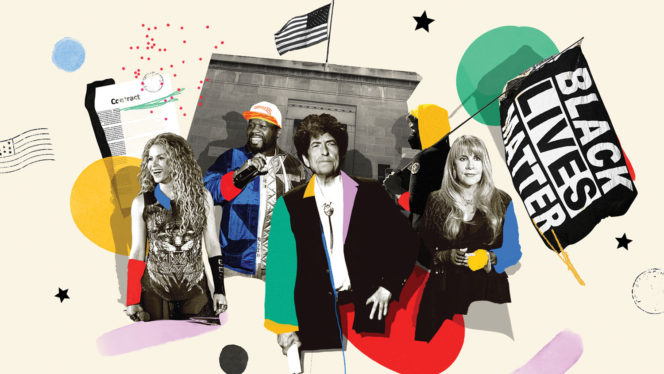Rod Stewart has backed out of a potential catalog sale to Hipgnosis after two years worth of negotiations with the company, a representative for the singer told Billboard.
Citing that he wanted to retain the ownership of his song catalog, Stewart said in a statement, “this catalog represents my life’s work. And it’s became abundantly clear after much time and due diligence that this was not the right company to manage my song catalog, career or legacy.”
Hipgnosis declined Billboard’s requests for comment, citing a non-disclosure agreement.
Further details about the potential catalog sale are not known, including whether he intended to sell his full catalog or just a smaller piece or royalty stream. Stewart’s team declined to comment further on the deal when asked for specifics.
Two music asset buyers independently noted to Billboard that Stewart’s public statement might be a “great way to drum up business for the catalog” and “to generate calls from potential suitors,” but another source noted it seems that a star of this magnitude would not need to speak out publicly in order to gain the attention of other buyers.
A two-time Rock and Roll Hall of Fame inductee, Stewart is one of the most celebrated and recognizable singers in pop music history. Some of his greatest hits across his more than five-decade career include “Maggie May,” “Tonight’s the Night (Gonna Be Alright),” “All for Love,” “Da Ya Think I’m Sexy?” “Baby Jane,” “Forever Young,” “One More Time,” and more. He first rose to prominence in the late 1960s as the lead singer for Jeff Beck’s post-Yardbirds effort The Jeff Beck Group and later as frontman for Faces, alongside fellow Beck alum Ronnie Wood.
By 1971, the raspy-toned singer had become a household name with his own solo album Every Picture Tells A Story and its surprise radio hit “Maggie May” which went on to simultaneously top the charts in the UK, US, Canada and Australia. From there, through the 1970s and 1980s, Stewart remained one of the mainstays on Billboard’s Hot 100 chart, continuing to earn hits as he experimented with daring elements of glam, disco, new wave, synth pop and more in his work.
His impact on music has continued into the 21st century, though mainly through covers. In the early 2000s, he found renewed success though a series of albums mining American pop standards and since then has released collections focusing on soul, rock classics and more, further cementing his legacy as one of music’s great vocalists.
Beyond landmark deals that have helped it amass a catalog of over 65,000 songs and records, Hipgnosis Songs Fund, the portion of the Merck Mercuriadis-founded company that is publicly traded on the London Stock Exchange, has struggled since last summer, with its share price declining by 27% from a year ago to 81.85 pence. “I’m not going to pretend that the current share price is anything other than disappointing,” Mercuriadis told investors in December. SONG reported its 2022 revenues rose 7.5% over the year prior.
With few levers to pull to grow Hipgnosis Songs Fund — the fund has been fully invested, meaning it has no additional funds to acquire new rights, for more than a year — Mercuriadis has struck deals with companies like Timbaland’s Beatclub to open up Hipgnosis’s catalog to more synch and sample opportunities.
Hipgnosis’ Blackstone-backed fund does not disclose its financials. While heightened macroeconomic concerns and interest rates have increased investor scrutiny for big-ticket deals, Hipgnosis and Blackstone have so far acquired rights to Justin Bieber’s catalog for an estimated $200 million in the last year. Other recent deals for Hipgnosis in general include songwriter Tobias Jesso Jr. and TMS, the British songwriting trio behind hits like “Someone You Loved” by Lewis Capaldi.
With reporting by Elizabeth Dilts Marshall
https://www.billboard.com/pro/rod-stewart-hipgnosis-catalog-sale-called-off/





